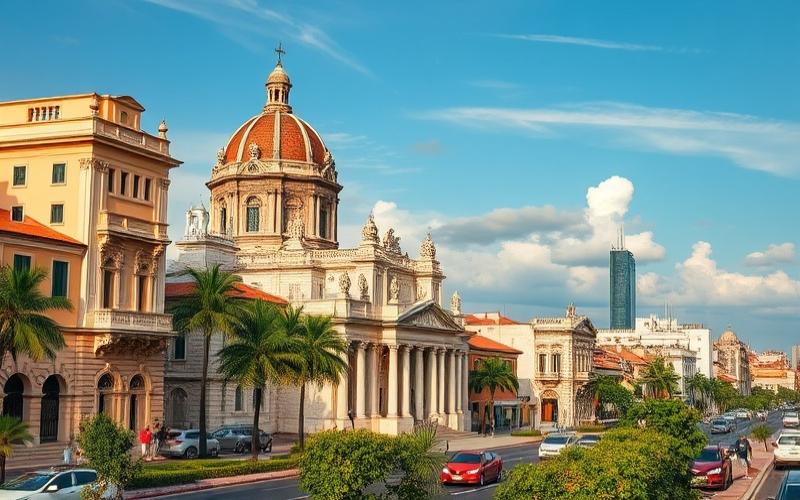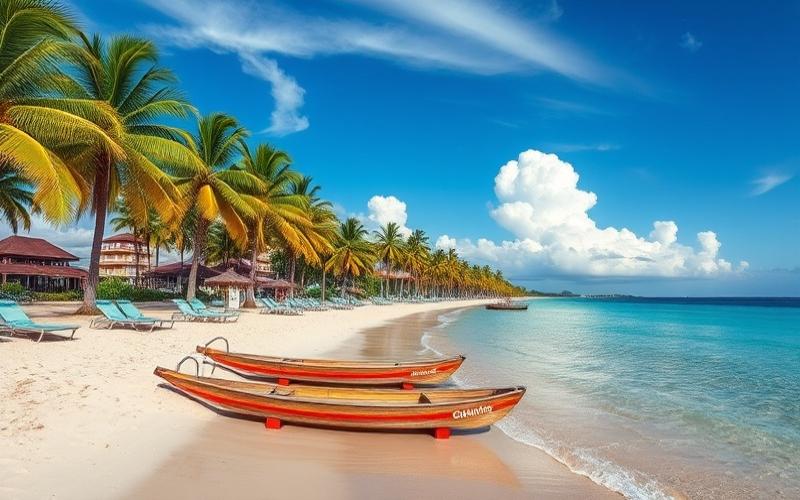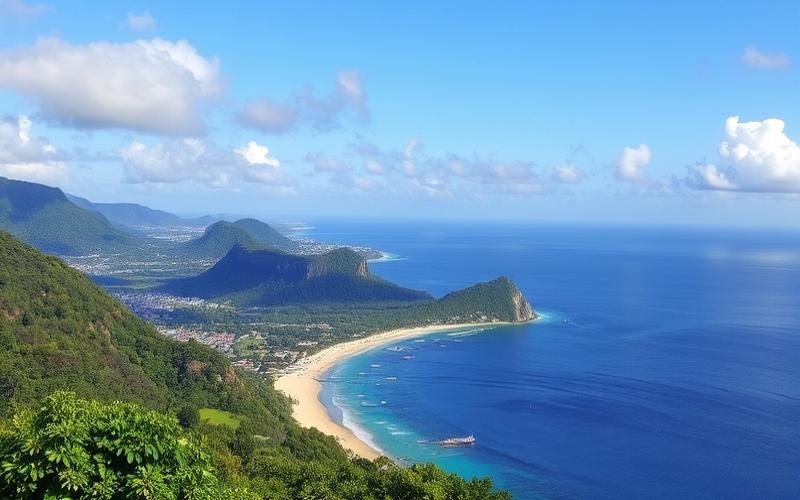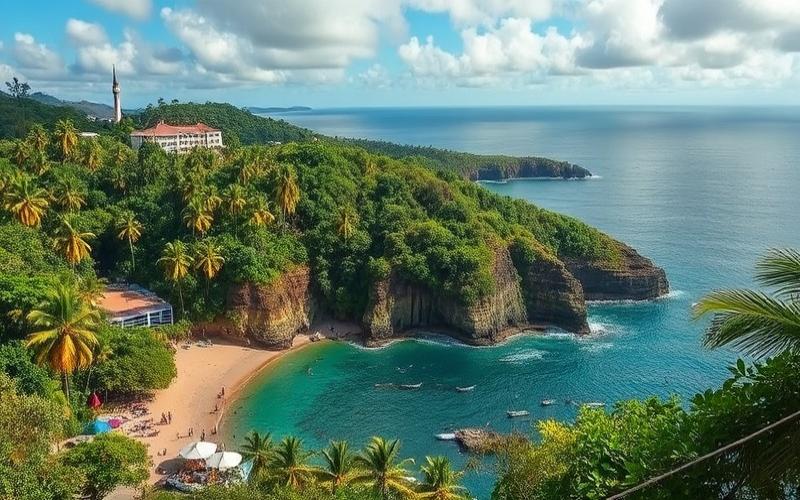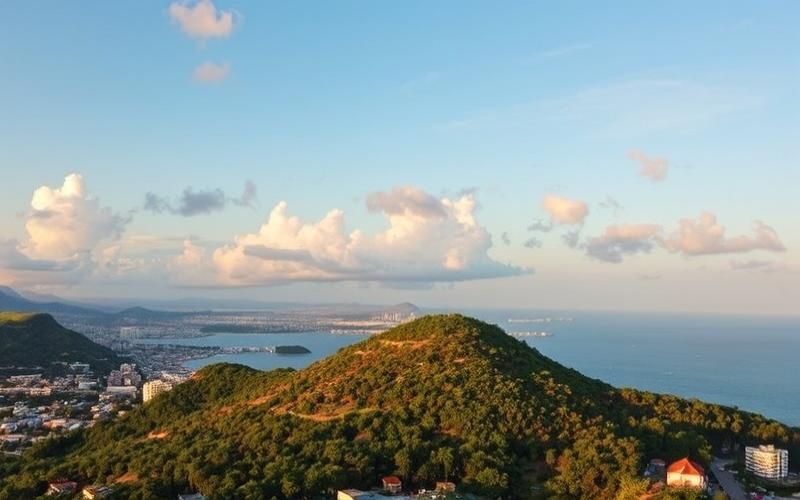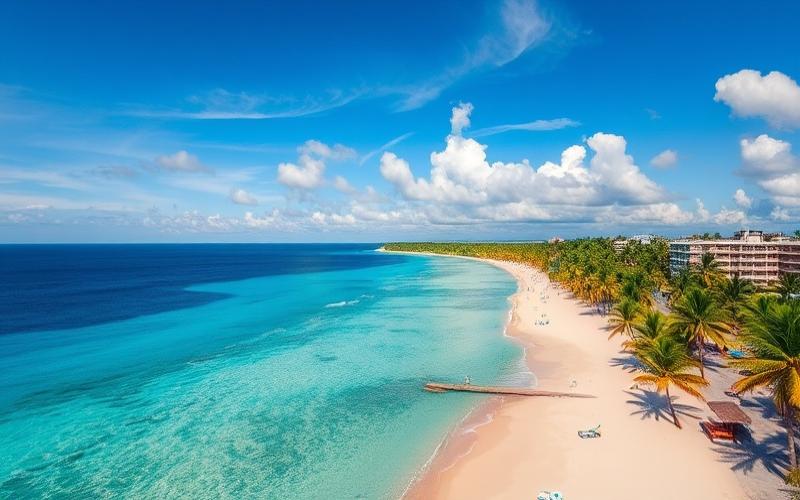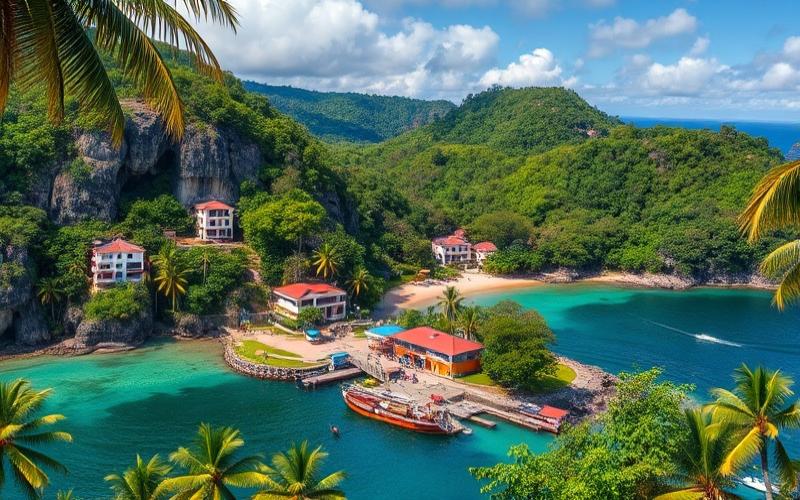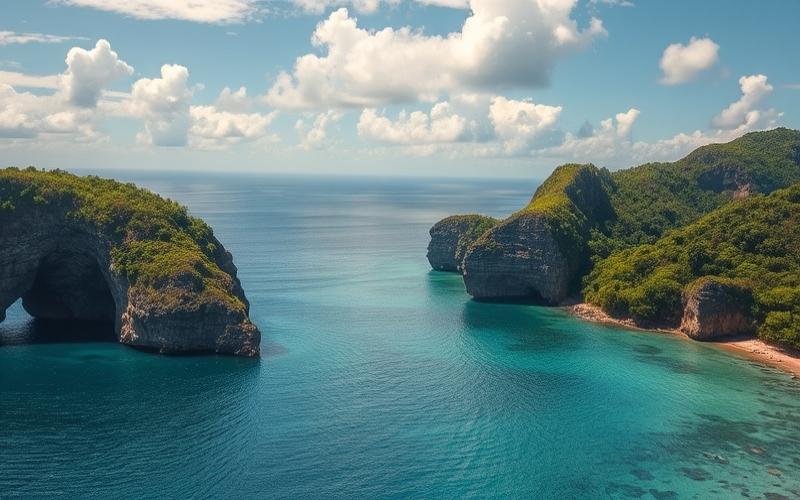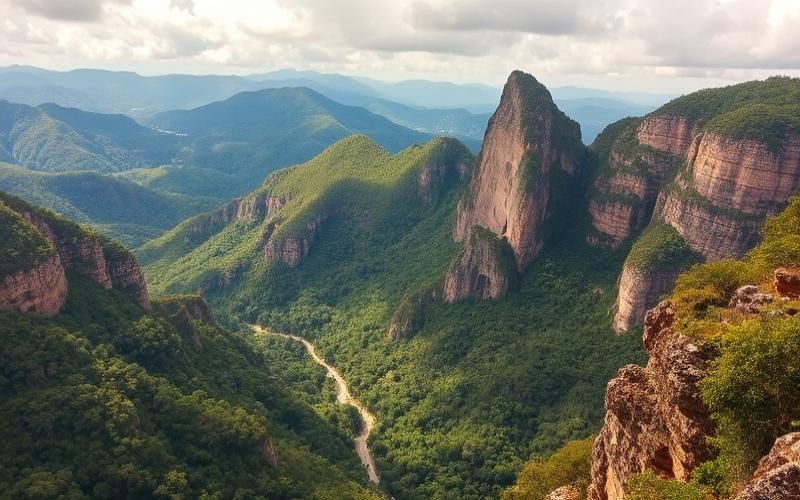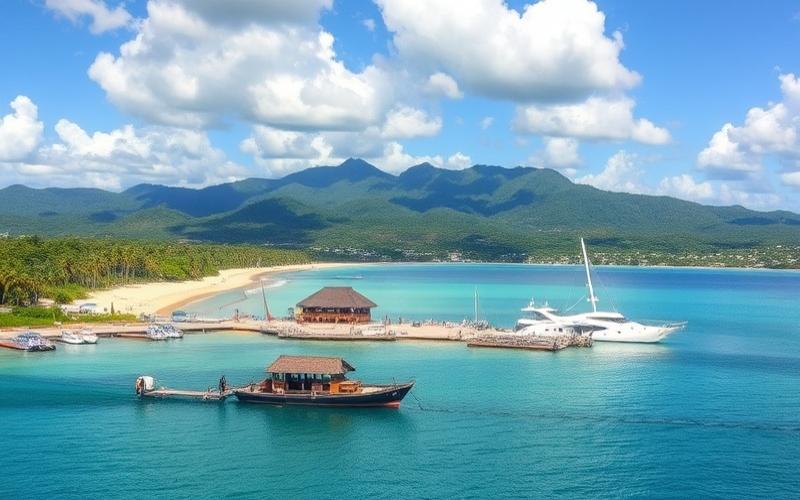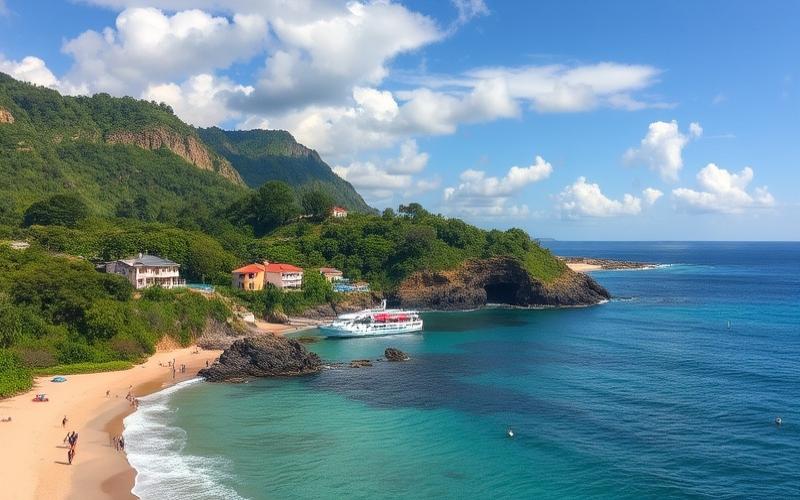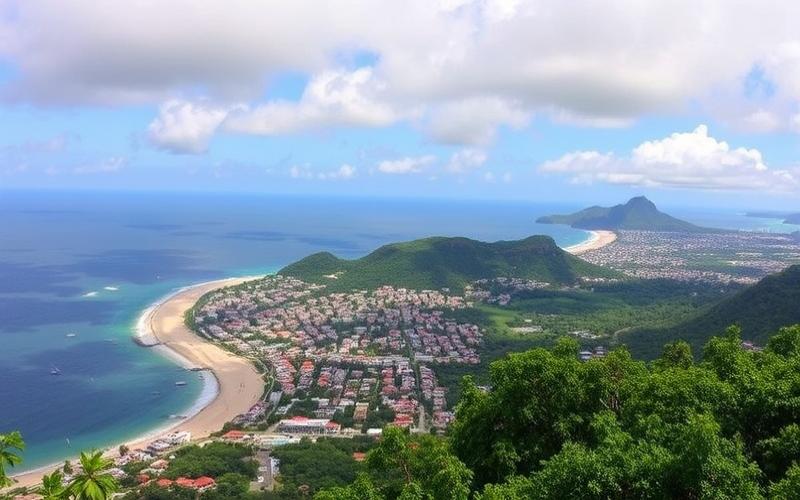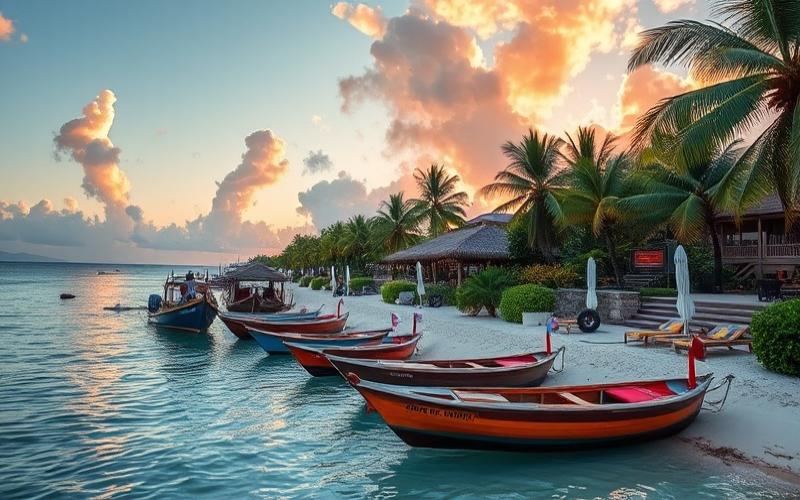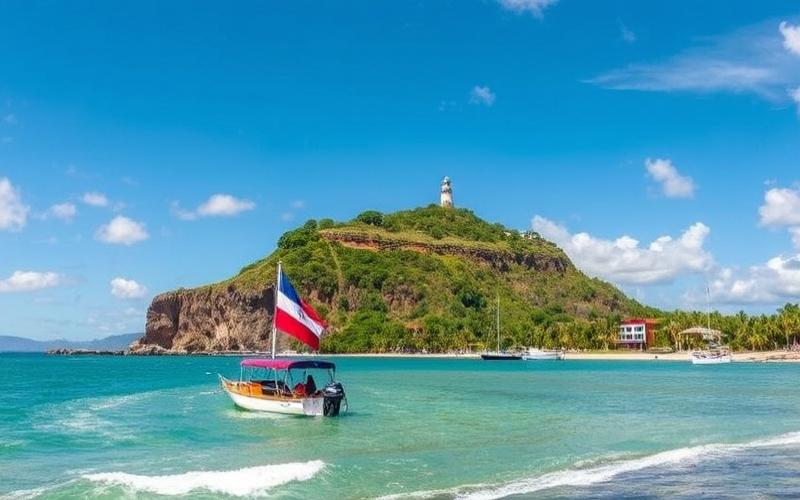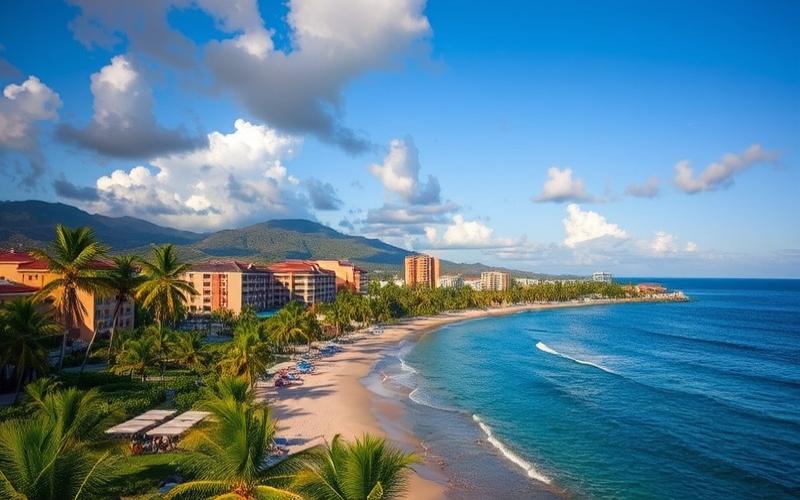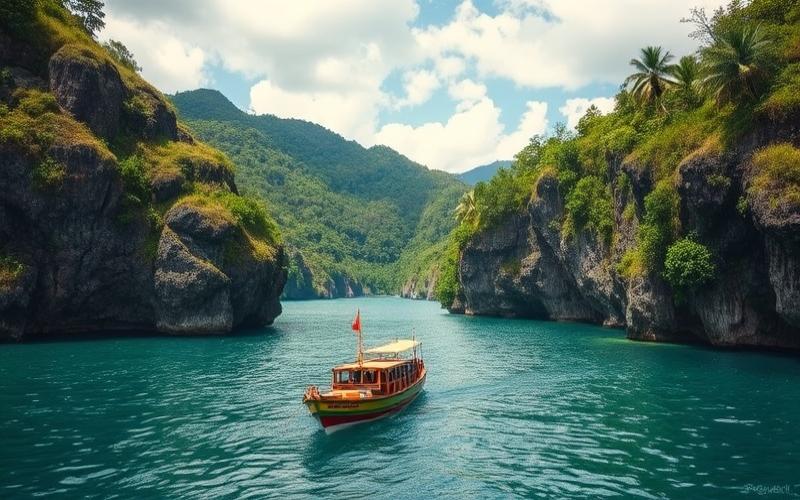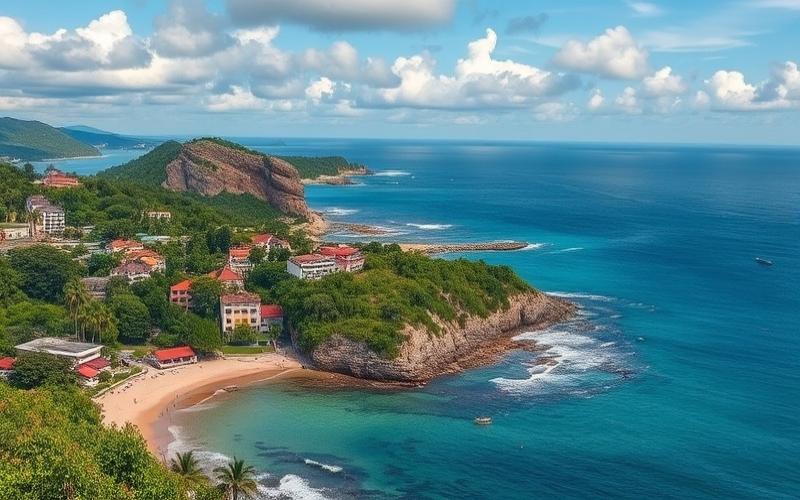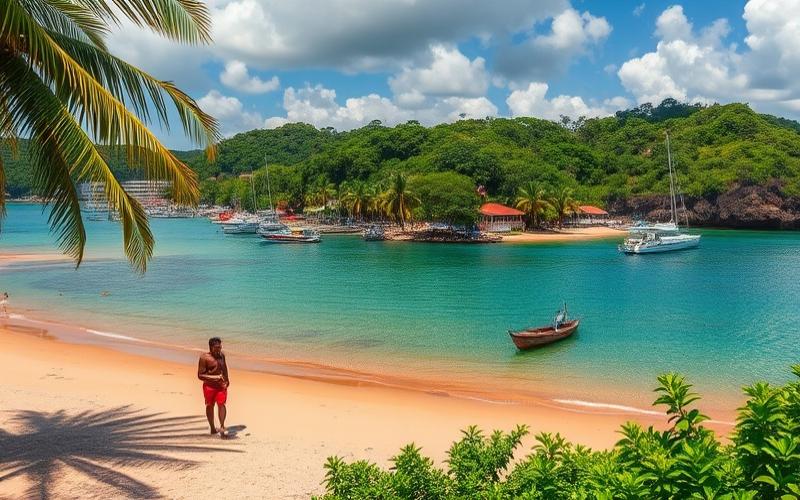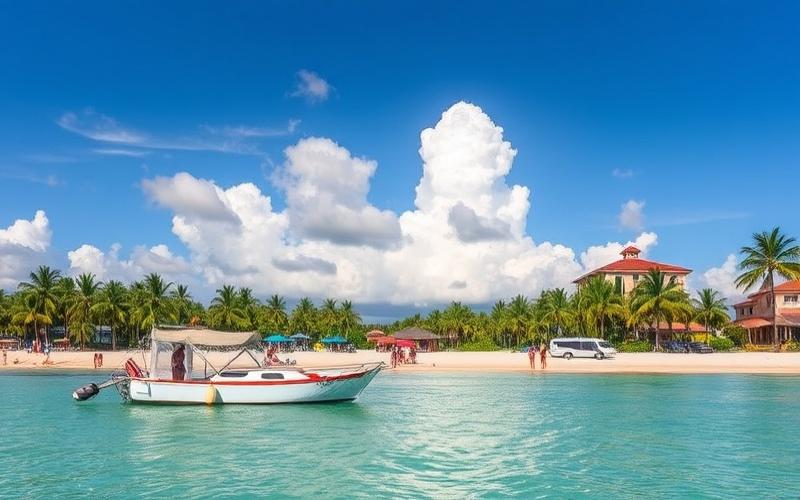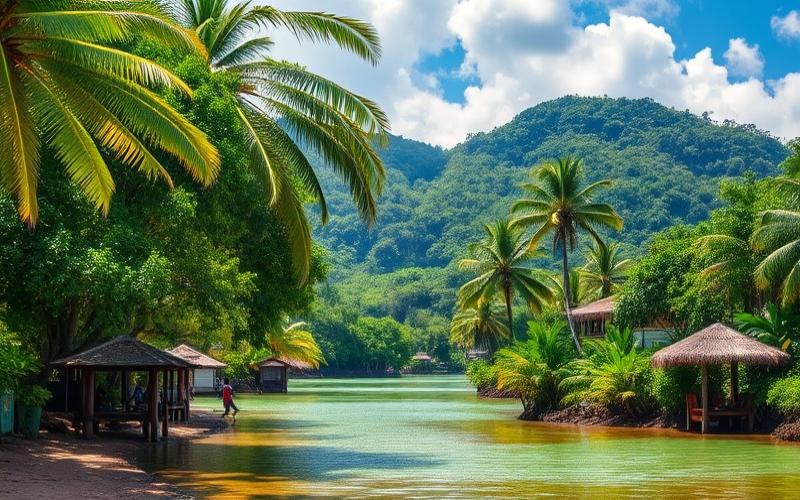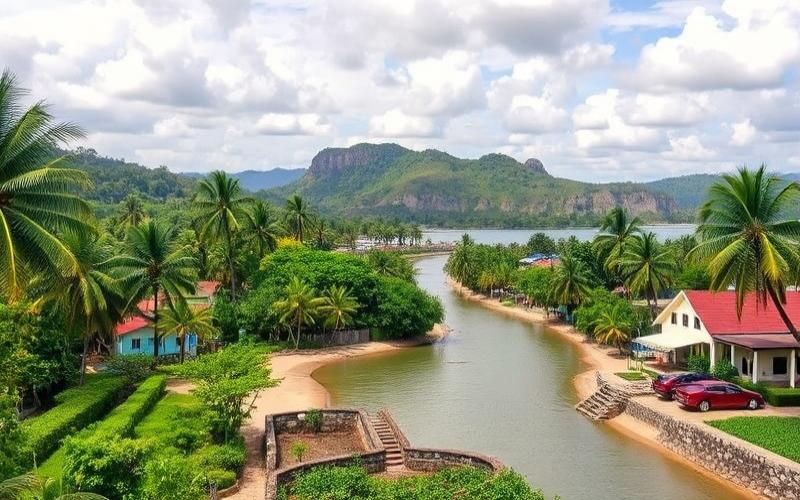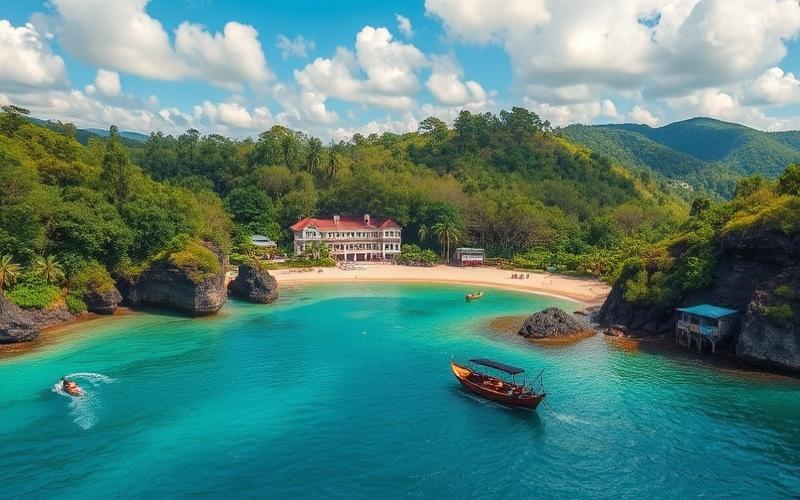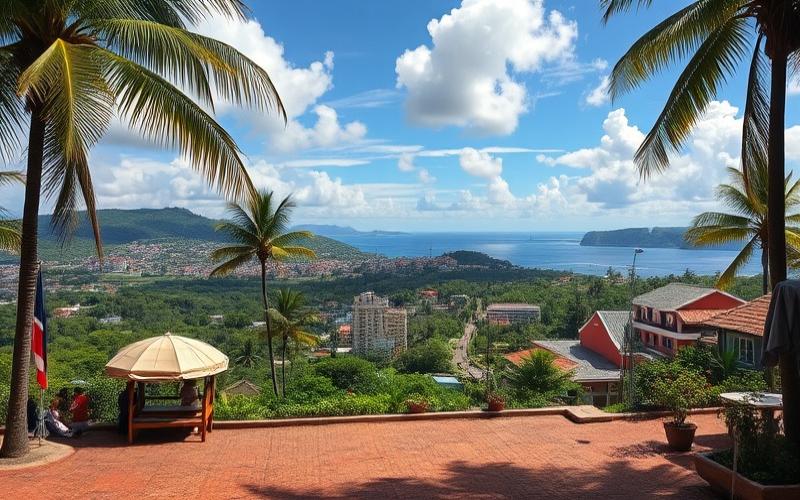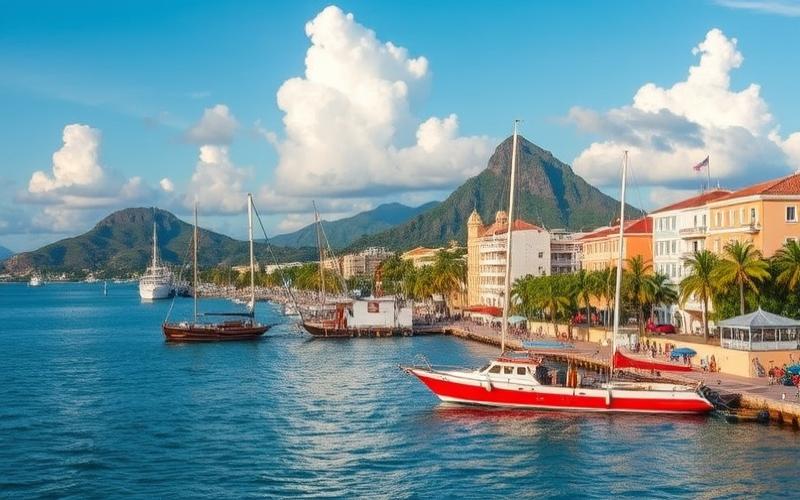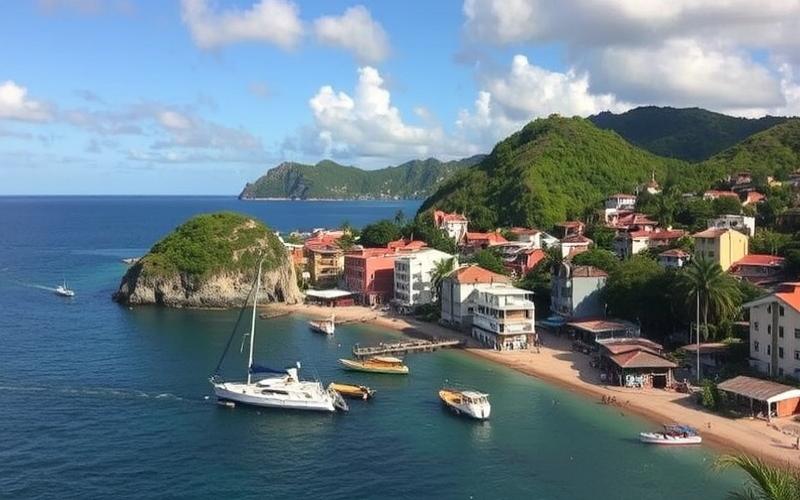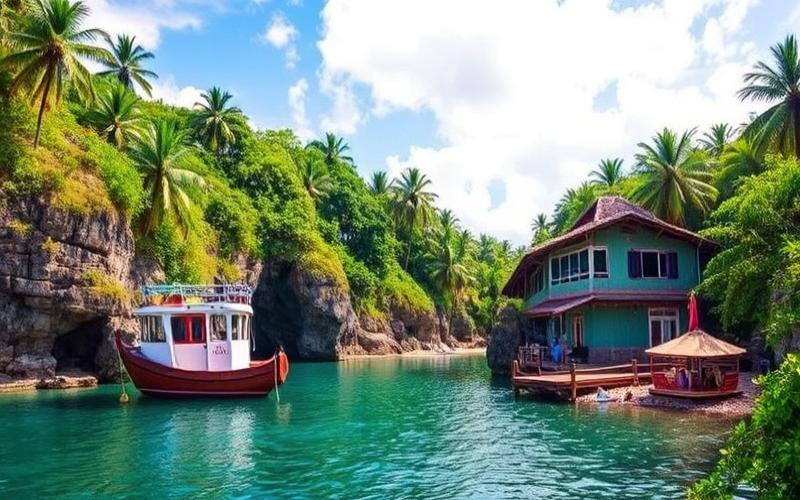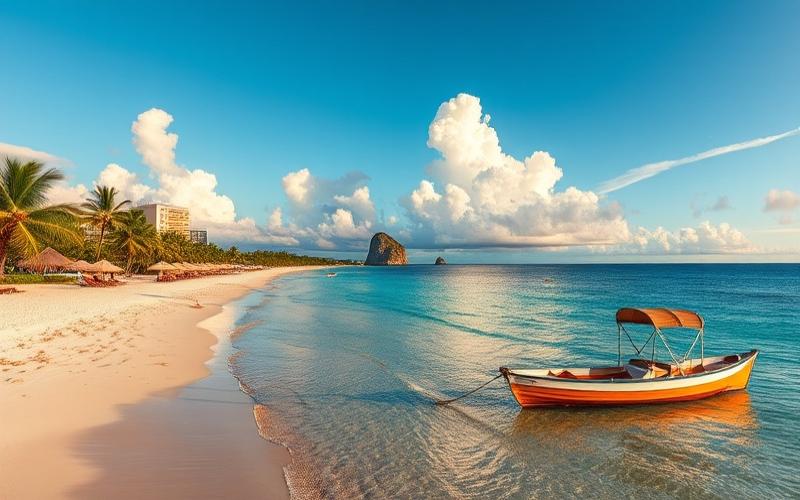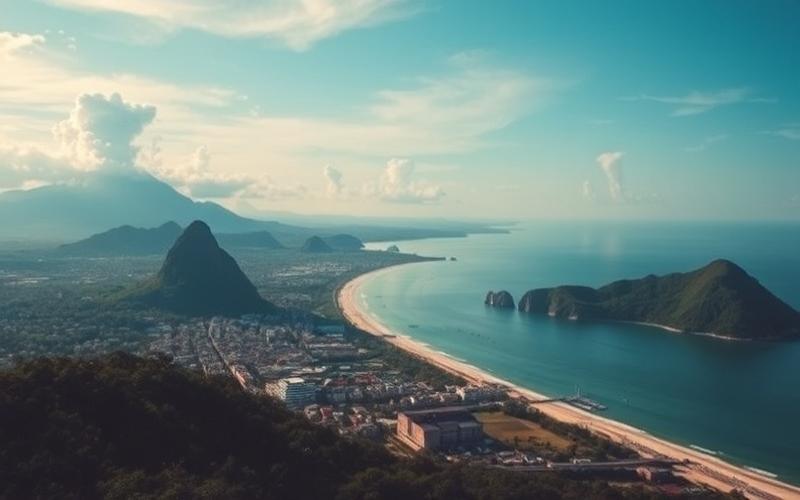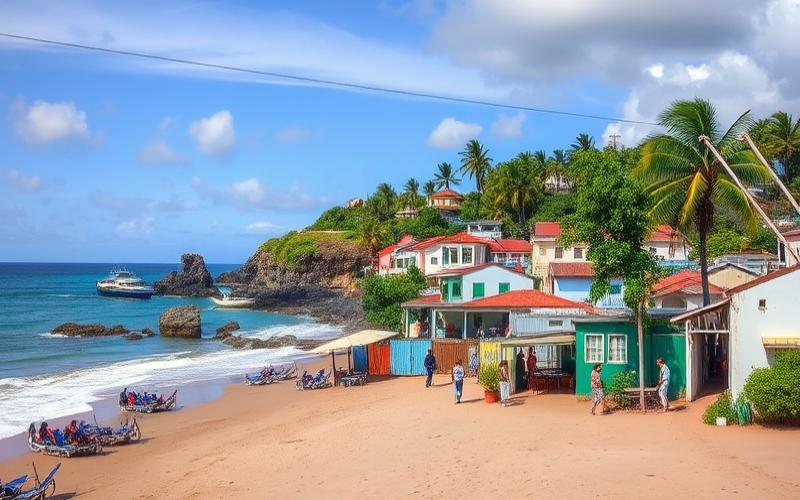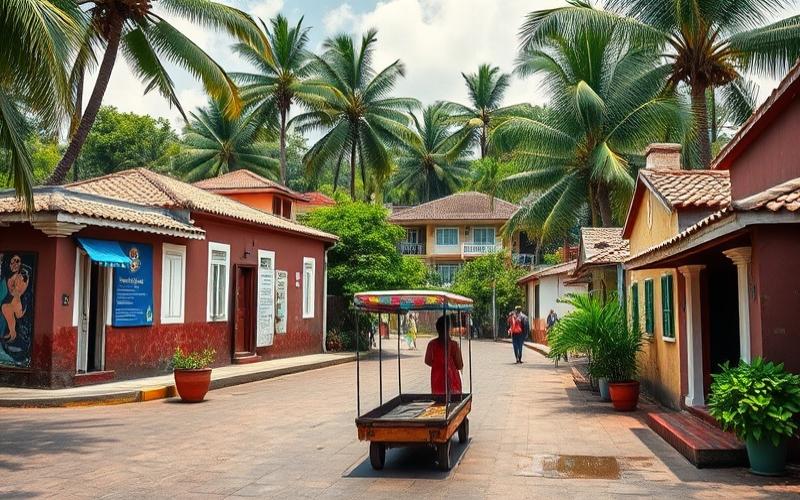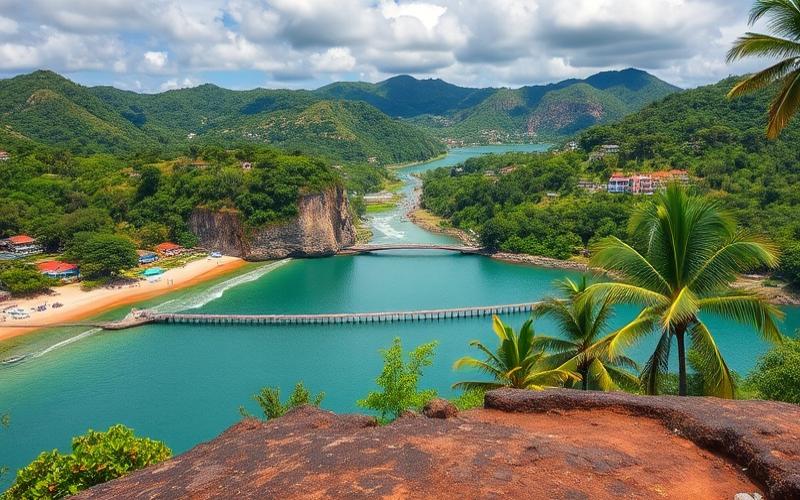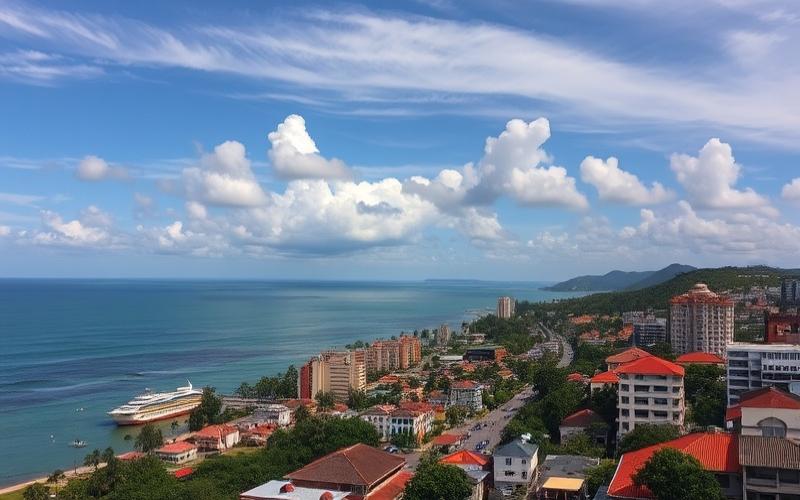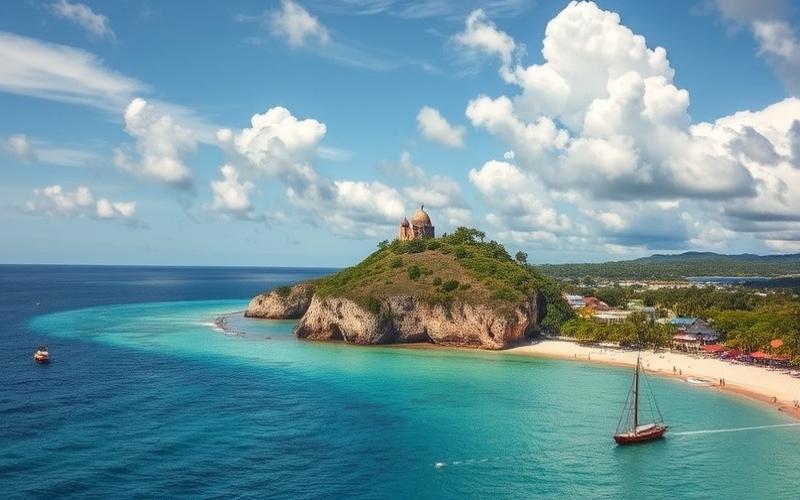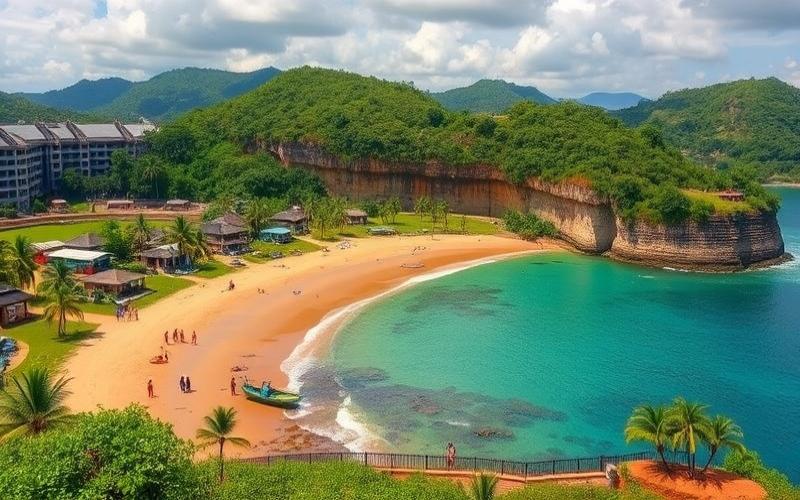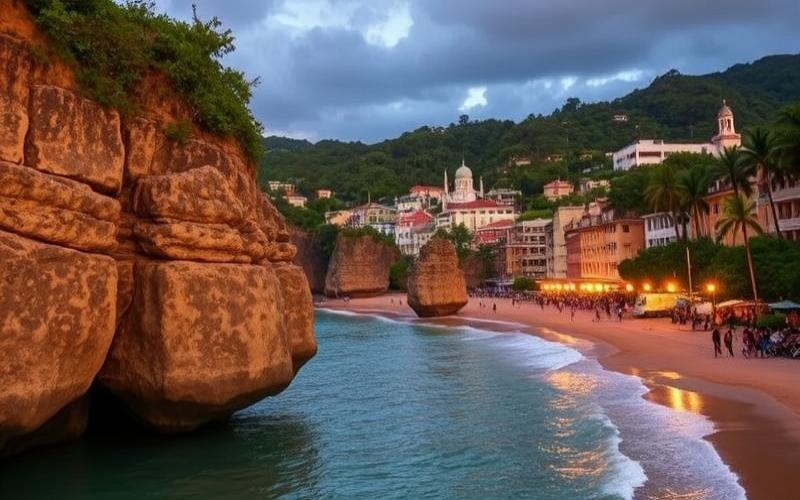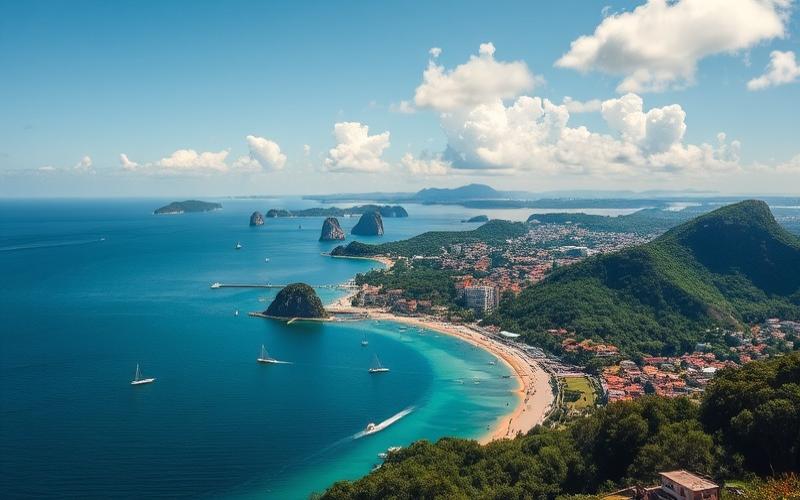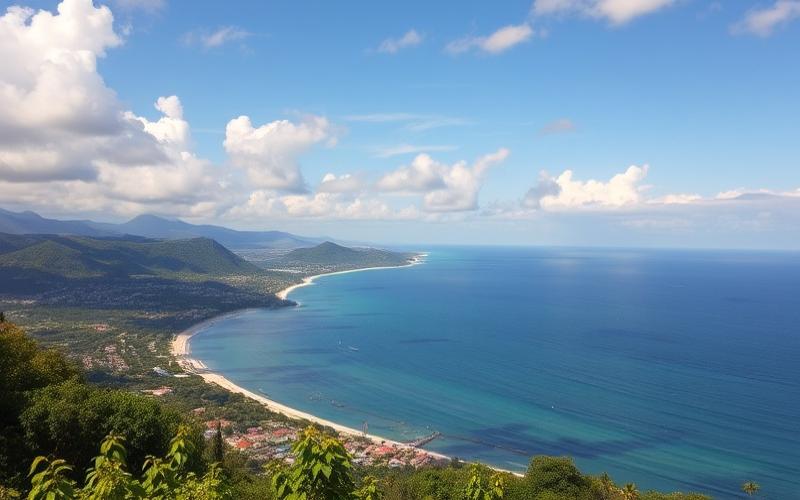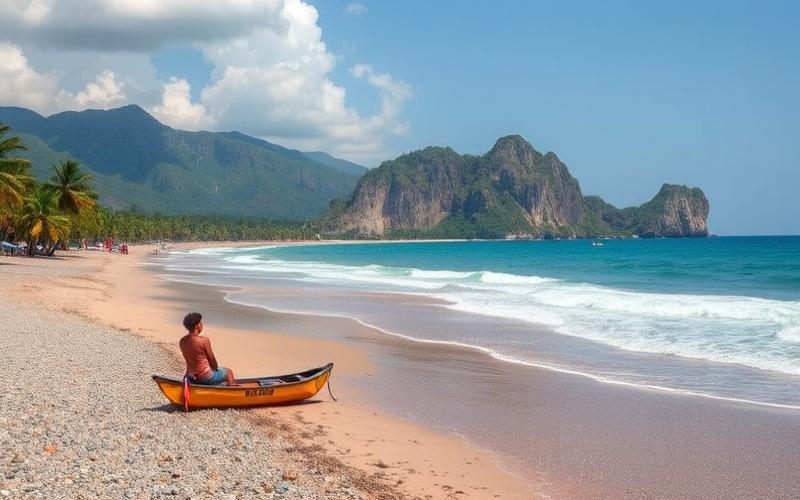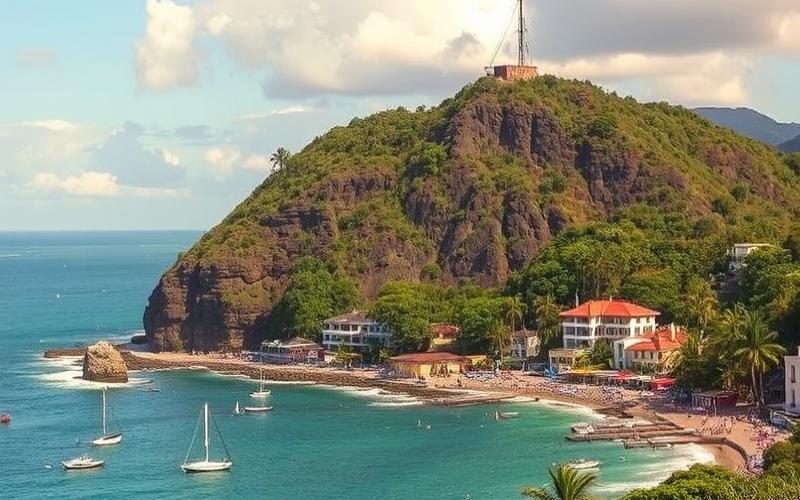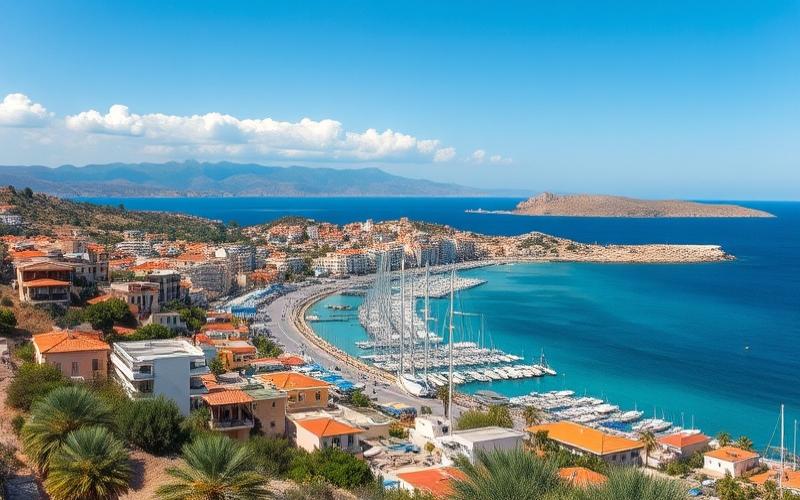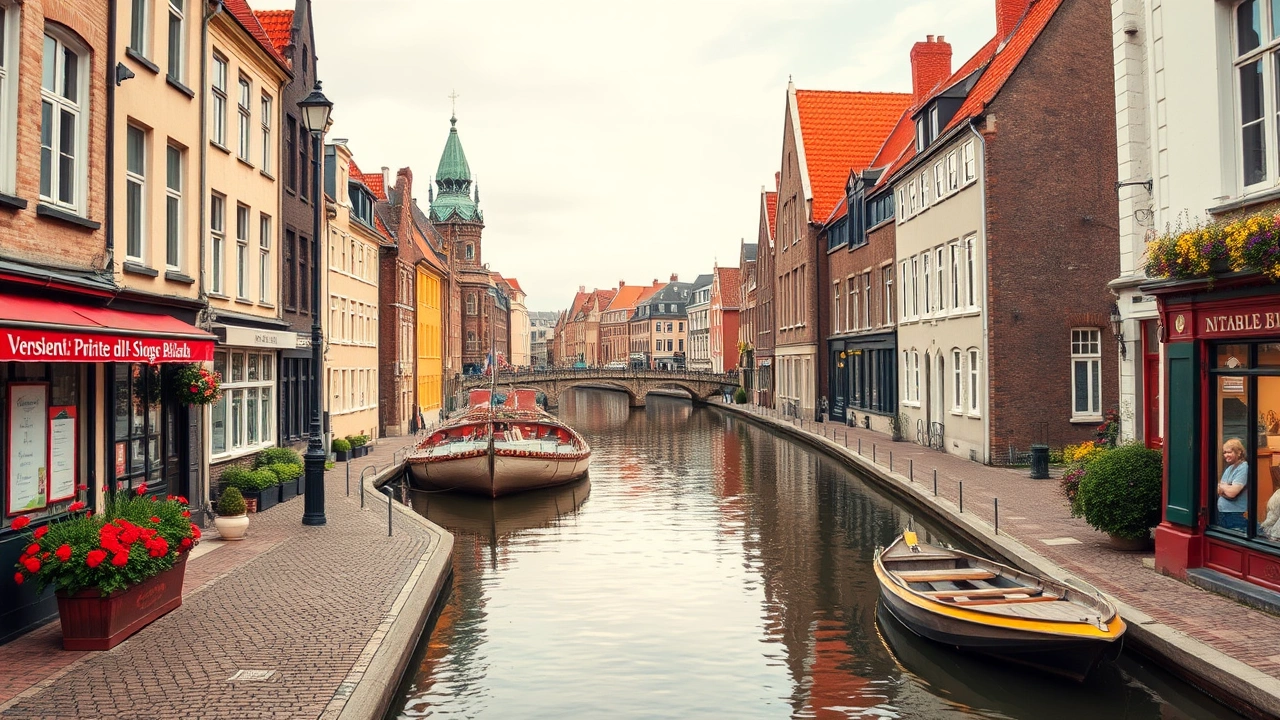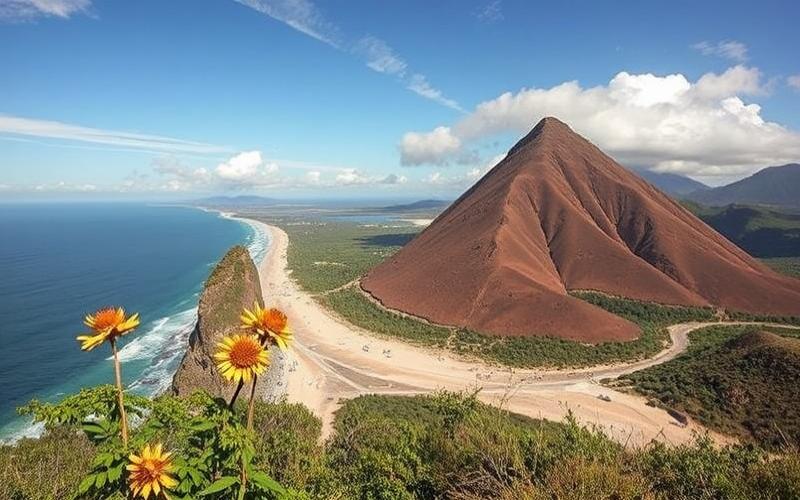
 Published on and written by Cyril Jarnias
Published on and written by Cyril Jarnias
Investing in the Dominican Republic: A Compelling Opportunity for 2025
Turning to the Dominican Republic to invest in its authentic villages represents a compelling opportunity by 2025. With a unique combination of picturesque landscapes and rich local culture, these villages offer not only undeniable charm but also profitability potential that increasingly attracts savvy investors.
As the country implements strategies to boost sustainable tourism, villages are becoming hubs for those seeking economic opportunities while contributing to local development.
Good to Know:
Deepening this sector could not only transform these communities but also offer investors the privilege of participating in preserving unique cultural traditions.
By investing in these authentic villages, you have the opportunity to generate significant profits while contributing to sustainable tourism development that respects the local environment.
Highlighting the Economic Potential of Dominican Villages
Dominican villages benefit from abundant natural resources such as gold, nickel, amber, marble, fertile land, fresh water, remarkable biodiversity, and an environment conducive to ecological tourism.
| Natural Resource | Primary Use | Impact on Local Development |
|---|---|---|
| Gold, nickel, silver | Mining, exports | Generates foreign currency and local jobs |
| Marble, amber | Crafts, jewelry, construction | Enhances local expertise, exports |
| Agricultural land | Subsistence farming, cocoa, fruits | Food security, income diversification |
| Fresh water, forests | Integrated management, ecotourism | Improves resilience, sustainable development |
Examples of Villages and Growing Sectors:
- Citrus Creek Plantation (Taberi, southeast): Pioneer eco-village based on permaculture and organic agroforestry, with cocoa, banana, organic tobacco crops and local processing into chocolate and handmade cigars.
- Villages along the Waitukubuli National Trail: Development of ecotourism, sustainable accommodations, guides and crafts, generating new non-agricultural jobs.
- San Cristóbal Province: Investments in integrated water management, reforestation, and agroecology, enabling over 24,000 residents to improve their livelihoods and water access.
Recent Statistics on Economic Impact:
- The mining sector represents about 15% of national exports, with the Pueblo Viejo mine among the world’s largest gold deposits.
- Ecotourism, certified Green Globe 21, is growing at over 7% annually, supported by the opening of the Waitukubuli National Trail (185 km), which attracts thousands of visitors each year.
- Public and private investments in water management and reforestation have increased resilience for over 24,000 people, 50% of whom are women, in strategic micro-watersheds.
Support Policies and Initiatives:
- Tax incentives for investment in renewable energy and organic agriculture.
- Government programs for conversion to organic agriculture, fair trade, and certification of sustainable practices.
- Private initiatives: development of eco-villages, community tourism circuits, support for local crafts, public-private partnerships for training and local processing.
Opportunities to Seize by 2025:
- Value addition in agroforestry and organic cocoa, with strong international demand.
- Development of ecotourism and agritourism, particularly around the Waitukubuli National Trail and coastal villages.
- Investments in rural renewable energy (solar, hydro) and smart water management.
Challenges to Overcome:
- Vulnerability to climate disasters (hurricanes, floods), requiring resilient infrastructure.
- Limited access to financing for small producers and artisans.
- Need for technical training and support for local processing and product upgrading.
- Preservation of ecosystems facing tourism and mining pressure.
Key Takeaways:
Dominican villages offer unique potential for sustainable economic development through responsible valuation of their natural resources, supported by dynamic public policies and innovative private initiatives. Investors attentive to sustainability and local impact will find concrete opportunities, provided they address resilience and training challenges.
Good to Know:
Dominican Republic villages are rich in natural resources such as cocoa and coffee plantations, lush forests, and pristine beaches, which are crucial for their economic development. For example, the village of Jarabacoa has thrived through investments in responsible tourism and sustainable agriculture, seeing 15% growth in its local economy since 2020. The government, with initiatives like FONDOMICRO, supports rural SMEs by offering low-interest loans, while the private sector multiplies ecological projects. By 2025, investors can seize opportunities in ecotourism and local crafts, though the need for improved infrastructure and market access remains a major challenge.
The Benefits of Rural Real Estate in Authentic Regions
Benefits of Rural Real Estate in Authentic Regions of the Dominican Republic
Attractive Acquisition Costs
- Rural real estate purchase prices remain generally much lower than in urban or coastal areas, allowing access to large properties with a moderate budget.
- Rural lands offer affordable investment opportunities, ideal for buyers seeking space or long-term projects.
Vast Land for Agriculture and Eco-Tourism
- Rural regions have extensive plots, suitable for creating farms, organic operations, or eco-tourism complexes.
- Potential to develop sustainable projects (agroecology, green tourism, outdoor activities) in harmony with the natural environment.
| Rural Asset | Associated Opportunity |
|---|---|
| Spacious land | Agriculture, eco-lodges, ecotourism |
| Low density | Privacy, development potential |
Cultural and Historical Wealth
- Authentic Dominican villages preserve a living culture: crafts, traditional festivals, colonial architecture, local cuisine.
- This uniqueness attracts visitors seeking unique experiences and a change of scenery, enhancing cultural tourism and slow travel.
Tranquility and Quality of Life
- Rural environments offer incomparable serenity, far from urban noise and mass tourism.
- Air quality, peaceful pace of life, closeness to nature: all elements sought by Dominican urbanites wanting a different, healthier, and balanced lifestyle.
Attractiveness Potential for Urban Dwellers
- More families and retirees from big cities are moving to the countryside to enjoy a preserved living environment.
- This movement fosters the development of new services and revitalization of villages.
Tax Incentives and Economic Benefits
- The Dominican government offers attractive tax exemptions: property tax (IPI) exemption for certain owners, benefits for tourism projects (Law 158-01 CONFOTUR), and incentives for seniors or foreign investors.
- New incentive measures are expected by 2025 to support investment in rural regions: tax relief, administrative facilities, support for agritourism.
| Tax Advantage | Description |
|---|---|
| IPI Exemption | No property tax for certain rural properties |
| CONFOTUR Law | Exemption from transfer taxes, property taxes, and capital gains for 15 years for qualified tourism projects |
| Upcoming Programs | New measures in favor of rural investment expected by 2025 |
Existing or Developing Infrastructure
- Facilitated access to drinking water, electricity, and Internet connectivity in many rural areas, thanks to public and private programs.
- Gradual deployment of road networks, local health services, and schools, enhancing the appeal and security of rural real estate investments.
Dominican rural real estate combines financial accessibility, development potential, quality of life, and tax benefits, in an authentic and evolving setting.
Good to Know:
Investing in rural real estate in authentic Dominican villages offers numerous advantages, including acquisition costs often lower than in urban or coastal areas. These regions provide the opportunity to purchase vast lands ideal for agricultural or eco-tourism projects, while enjoying the undeniable charm of cultural and historical richness that attracts tourists seeking unique experiences. The tranquility and quality of life in these environments appeal to both visitors and Dominican urbanites looking to adopt a different lifestyle. Moreover, the Dominican government may propose advantageous tax incentives by 2025 to encourage these investments. Infrastructure, such as access to water, electricity, and Internet connectivity, is already in place or developing, further enhancing the attraction to these regions.
How Heritage Authenticity Attracts Investors
The authenticity of cultural and architectural heritage in Dominican villages is a key lever for attracting investors, as it guarantees a rare and sought-after experience rooted in local history and identity. These villages offer a preserved setting where every stone, every cobblestone street testifies to a rich and unique past.
List of Specifics That Make These Places Unique:
- Colonial or Mediterranean architecture, such as in Altos de Chavón with its stone houses, cobblestone streets, and amphitheater inspired by ancient Rome.
- Presence of local artists, art galleries, archaeological museums dedicated to the Tainos or religious history.
- UNESCO World Heritage sites, like the Colonial Zone of Santo Domingo with its first paved streets, historic cathedral, and New World university.
- Exceptional natural landscapes: cliffs overlooking the Chavón River, pristine beaches (Las Terrenas), protected national parks.
Table of Tangible and Intangible Aspects of Authenticity:
| Aspect | Concrete Examples |
|---|---|
| Tangible | Traditional stone houses |
| Historic alleyways | |
| Religious monuments (Basilica of Our Lady) | |
| Archaeological museums | |
| Intangible | Local crafts (Taino sculpture) |
| Dominican folklore (bachata as background music) | |
| Local culinary traditions | |
| Community life centered around religious festivals |
Valuing local heritage involves restoring historic buildings, highlighting folk arts through galleries or cultural festivals, and supporting local crafts. This approach significantly increases:
- Tourist value through a differentiated offer focused on authentic immersive experiences;
- Economic value through job creation linked to cultural tourism;
- Attractiveness for investors seeking not only real estate but also a strong story likely to attract demanding international clientele.
Current Investor Trends:
- Active search for destinations offering a high degree of heritage authenticity to meet the growth of experiential tourism.
- Increased valuation of properties with pronounced cultural identity enabling transformation into boutique hotels or artistic residences.
- Investments oriented toward regions capable of offering unique “storytelling” combining living history and preserved local practices.
This dynamic is fueled by the growing quest for immersive experiences where visitors want to live “like a local,” participate in culinary or craft traditions while immersing themselves in regional folklore. Dominican villages thus become not only investment objects but also major vectors of sustainable valuation thanks to their preserved authenticity.
Good to Know:
The authenticity of cultural and architectural heritage in Dominican Republic villages attracts investors through its unique and preserved character, offering a wealth of history and strong identity. Specifics such as local crafts, folklore, culinary traditions, and authentic community life create an ideal setting for investments focused on cultural tourism and immersive experiences. Dominican villages, with their colonial constructions and picturesque atmosphere, offer not only attractive intangible experiences but also increase the economic and tourist value of regions through the preservation and enhancement of this rich heritage. Currently, investors leverage these assets to capitalize on growing demand for authenticity from tourists, which in turn supports the local economy and strengthens the attractiveness of these places.
Disclaimer: The information provided on this website is for informational purposes only and does not constitute financial, legal, or professional advice. We encourage you to consult qualified experts before making any investment, real estate, or expatriation decisions. Although we strive to maintain up-to-date and accurate information, we do not guarantee the completeness, accuracy, or timeliness of the proposed content. As investment and expatriation involve risks, we disclaim any liability for potential losses or damages arising from the use of this site. Your use of this site confirms your acceptance of these terms and your understanding of the associated risks.


